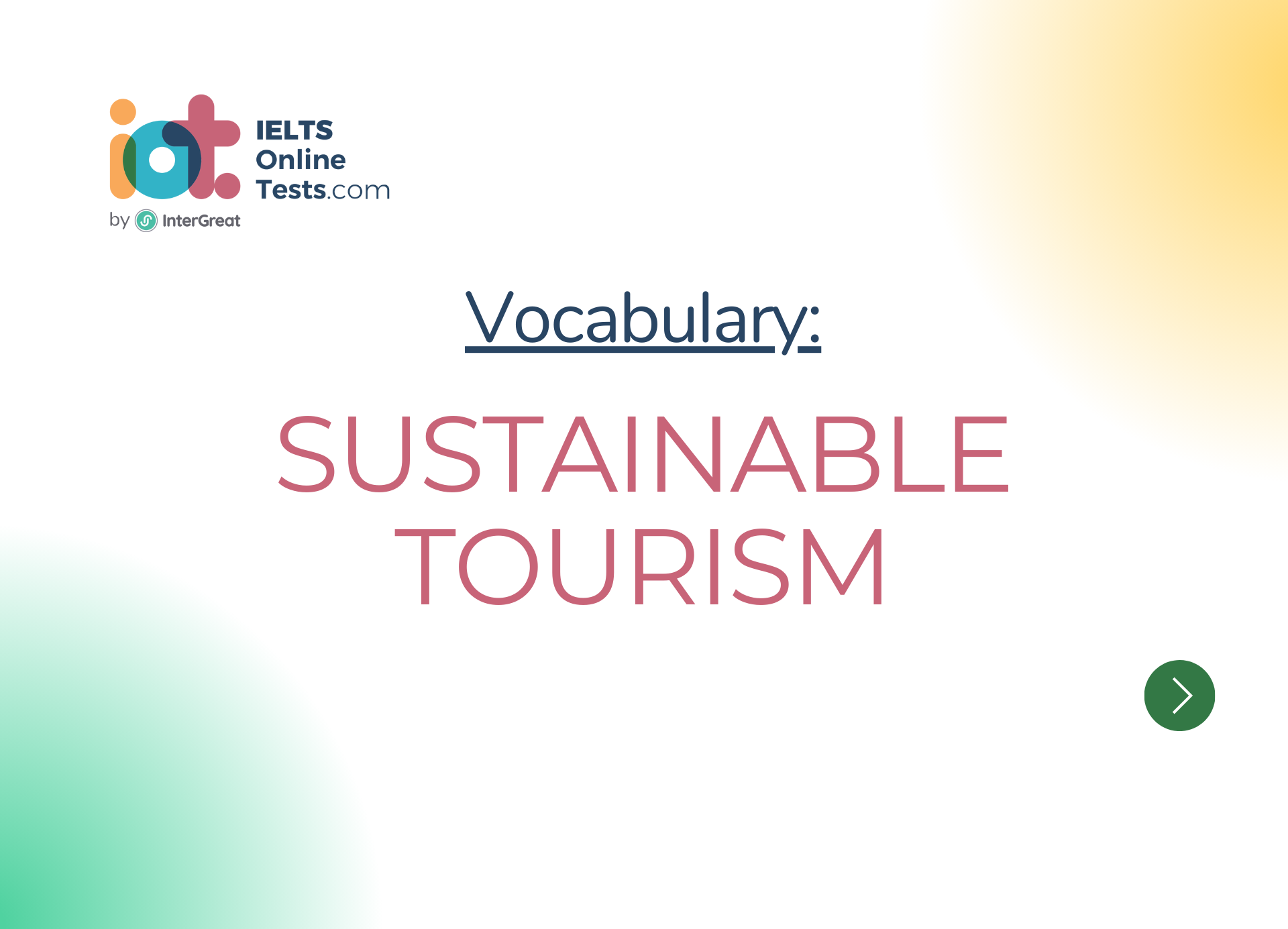
Sustainable tourism
Below is a detailed list of vocabulary related to "Sustainable tourism" suitable for IELTS band 6.5-8.0:
Sustainable Tourism:
- Definition: Tourism that aims to have a positive impact on the environment, society, and economy of a destination, while preserving its cultural and natural resources for future generations.
Ecotourism:
- Definition: Responsible travel to natural areas that conserves the environment and sustains the well-being of local communities.
Responsible Travel:
- Definition: Traveling in a way that minimizes negative impacts on the environment and respects the local culture and communities.
Carbon Footprint:
- Definition: The total amount of greenhouse gases produced, directly or indirectly, by an individual, organization, or product.
Green Practices:
- Definition: Environmentally friendly actions and behaviors adopted by businesses and travelers to reduce their ecological impact.
Biodiversity:
- Definition: The variety and variability of life forms within a given ecosystem, both plants and animals.
Cultural Preservation:
- Definition: Efforts to safeguard and maintain the cultural heritage and traditions of a destination.
Community-Based Tourism:
- Definition: Tourism that directly involves and benefits the local communities and aims to empower them economically and socially.
Conservation:
- Definition: The protection and preservation of natural resources, wildlife, and ecosystems.
Environmental Sustainability:
- Definition: The responsible use of natural resources to ensure that they are available for future generations.
Eco-friendly Accommodation:
- Definition: Lodging facilities that adopt practices to reduce their environmental impact, such as using renewable energy and minimizing waste.
Local Empowerment:
- Definition: Activities and initiatives that give local communities more control over their resources and decision-making.
Sustainable Development:
- Definition: The practice of meeting the needs of the present without compromising the ability of future generations to meet their own needs.
Carbon Offset:
- Definition: A reduction in greenhouse gas emissions to compensate for emissions made elsewhere, typically achieved through projects that reduce or sequester carbon.
Ethical Wildlife Tourism:
- Definition: Tourism activities that promote the well-being of animals and do not harm or exploit them.
Fair Trade Tourism:
- Definition: Travel that supports fair wages and working conditions for local employees in the tourism industry.
Nature Conservation:
- Definition: The protection and preservation of natural landscapes, habitats, and species.
Sustainable Practices:
- Definition: Actions and behaviors that promote environmental, social, and economic sustainability.
Cultural Exchange:
- Definition: Interacting with and learning from local cultures and traditions during travel.
Environmental Impact Assessment:
- Definition: A study that assesses the potential environmental effects of a project or development.
Sustainable Tourism Certification:
- Definition: A recognition or label given to businesses and destinations that meet specific sustainability criteria.
Waste Reduction:
- Definition: Strategies and initiatives to minimize the amount of waste generated during travel and tourism activities.
Water Conservation:
- Definition: Practices and measures to preserve and efficiently use water resources.
Local Sourcing:
- Definition: Purchasing products and services from local suppliers to support the local economy.
Sustainable Tour Operator:
- Definition: A company that organizes travel experiences with a focus on sustainability and responsible practices.
Social Responsibility:
- Definition: The obligation of individuals and organizations to act in ways that benefit society as a whole.
Volunteer Tourism:
- Definition: Traveling to participate in volunteer activities that contribute to community development or environmental conservation.
Sustainable Transportation:
- Definition: Modes of travel that have a lower impact on the environment, such as biking, walking, or using public transportation.
Sustainable Tourism Policy:
- Definition: Government or organizational guidelines and regulations that promote sustainable tourism practices.
Resource Management:
- Definition: Strategies for the responsible use and conservation of natural resources in tourism destinations.
By incorporating these vocabulary words into your studies and practice, you can enhance your language proficiency and be better prepared for the IELTS exam. Best of luck!




